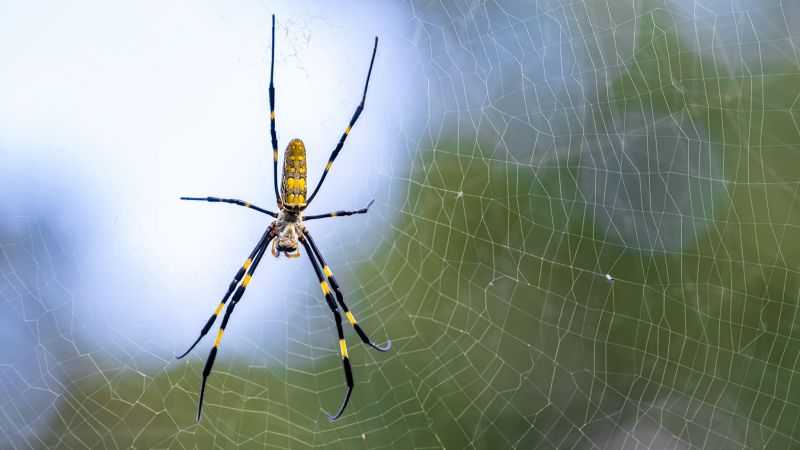As the Jorō spider continues to spread across the southeastern United States, its spindly homes can be spotted almost anywhere — even on power lines and stoplights hovering over busy roads.
Typical spiders — and most creatures — tend to find the noise and wind disturbance from nearby busy roads to be too stressful, but the Jorō spider doesn’t seem to mind much, according to a new study published in Arthropoda on February 13. This research could explain why the spiders are regularly spotted in urban areas that native spiders don’t inhabit and suggests the creatures are well-suited to thrive and spread in similar locations throughout the United States.
“If you ever look at a spiderweb next to a road, they’re jiggling and shaking, and it’s a cacophony of stimuli. … Roadsides are a really harsh place for an animal to live. But Jorōs seem to be able to live next to them,” said lead study author Andy Davis, a research scientist at the University of Georgia’s Odum School of Ecology.



They’re very close to what people call garden spiders or corn spiders that are all over the US.
They’re big and creepy, but they’re harmless.
If you pick one up and handle it enough that it gets pissed off and bites you, it’ll be equivalent to a bee sting.
If you don’t pick it up and piss it off there’s 0% chance of you getting bit by one.
The problem is that they’ll build a web anywhere. Garden spiders have the common fucking decency to build their webs in bushes, or trees, not across my front doorway.